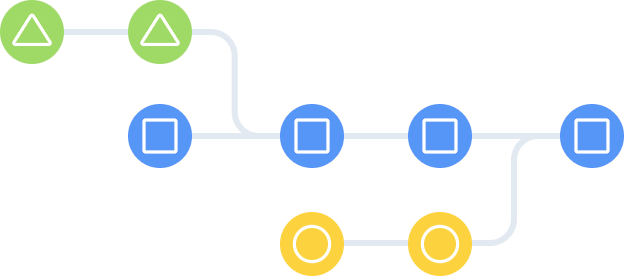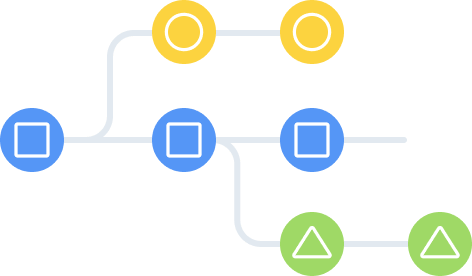What is Node.js and what are some Node.js advantages?
Is Node.js a framework? Is Node.js a library? These are some questions that you might have when you’re just beginning Node.js. So what is Node.js? Simply put, Node.js is server-side JavaScript, which allows developers to write server-side code in JavaScript without needing to learn another language. Node.js is also a JavaScript runtime environment, which means that it executes JavaScript code outside of a browser.
Unlike other back-end, or server-side facing languages, such as PHP, one Node.js advantage is that it uses event-based asynchronous functions. This means that the server-side JavaScript runs a single-threaded event loop to handle connections, and each new connection triggers a JavaScript callback function without having to wait for I/O calls. This Node.js advantage allows developers to build more scalable and complex architectures with less memory and resources.
Node.js also has a rich ecosystem. Its default package manager, npm, is also a marketplace for open-source JavaScript tools. With over 10,000 new libraries published each week, it’s estimated that almost all modern web applications consist of npm modules.
Why should I practice Node.js by building projects?
Project-based learning is a method of learning where you learn a skill through working on a project. This type of learning allows you to learn not only the theory, but also how to apply those skills.
By building a Node.js project, you'll practice the high-level logic of your code and project, and see how each individual line can impact your application. You will also gain problem-solving skills and how to fix it. With so many Node.js projects available, finding an idea that interests you will make the learning process more fun and sustainable.
When you finish building a project, you will have learned and practiced Node.js techniques, gained problem solving skills, learned how to ask questions, and have a finished project to show off.
How do I know which Node.js projects are best for learning Node.js?
The best way to learn Node.js is to practice Node.js by building as many projects as possible. There are three factors you should consider when picking the right Node.js project: your skill level, goals, and interest.
You want to have a good idea of your skill level and choose Node.js practice projects that are not too easy or too hard for you. If you work on Node.js projects that are too easy, you won’t progress in your coding abilities. However, if you choose projects that are too difficult, you may get stuck, never finish the project, and feel discouraged. Therefore, you want to choose Node.js projects that are just a little bit above your current skill level.
Now, you also want to build Node.js projects that not only allows you to practice Node.js, but also lets you show off your skills on your portfolio. So think about the types of Node.js projects you want to put on your portfolio and jobs you’re interested in as a developer. Think about what your long-term goals are and pick Node.js projects that align with them.
Lastly, you definitely want to choose Node.js projects that you’re actually interested in and feel connected to. Learning by building Node.js projects you’re interested in will help you stay motivated. You’ll also be more likely to want to go above and beyond to make your Node.js project stand out in the crowd.
Can Node.js beginners learn by building Node.js projects?
Node.js projects are a great way for beginners to learn. Two major obstacles beginners face when learning Node.js are not knowing why you’re learning Node.js and losing motivation. By learning Node.js through building projects, you will be able to overcome both hurdles.
When you’re learning Node.js, you may not know how to apply Node.js theories in the real world. But when working on beginner Node.js projects, you immediately learn how each line of code impacts your project. By giving theory context, you’ll understand how to apply theories and find more resources to complete your Node.js project. These Node.js projects for beginners can also help you build up your portfolio early on. Each Node.js project you finish can be incorporated into your portfolio to demonstrate your new skills.
Another issue that often comes up for beginners is losing motivation. However, when it comes to projects, you can pick a beginner Node.js project that you’re interested in. Not only will you be more motivated when you work on something interesting, you’ll also want to continue to improve the project. As your Node.js project comes together, the sense of accomplishment will give you the momentum to keep going, even when things get hard. Additionally, you’ll learn how to approach problems from multiple angles and teach yourself how to search for answers. The ability to problem-solve is arguably one of the most important skills a developer should have.
















